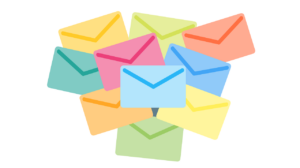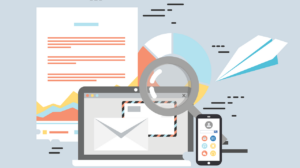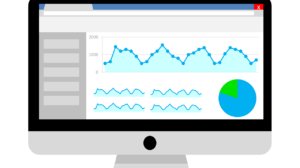Have you ever sent out a marketing campaign only to realize that a significant portion of your messages reached the wrong audience, or worse, bounced back due to outdated contact information? If so, you’re not alone. A significant portion, exceeding 40%, of sales representatives face challenges due to insufficient & obsolete information about their leads, adversely affecting their sales performance.
In the marketing world, data is the driving force behind successful marketing campaigns, and the quality of that data can make or break your marketing ROI. This raises a critical question: How can businesses ensure their marketing efforts are not only reaching the right audience but also generating the maximum impact? The answer lies in the transformative power of using clean data.
In this blog, we’ll learn how data cleansing plays a pivotal role in enhancing marketing ROI.
The Power of Data Cleansing in Marketing ROI Improvement
Reach the Right Prospects with the Right Message
Imagine casting a fishing net into the ocean without knowing where the fishes are. That’s akin to running marketing campaigns with unclean data. Data cleansing allows you to refine and update your customer information, ensuring that your messages reach the right audience. With accurate data, you can target your campaigns more precisely, increasing the likelihood of conversions.
Improve Customer Engagement
With clean data, you can create a 360-degree view of each customer, including their preferences, behaviors, and interactions with your brand. The result is a more personalized and seamless customer experience across all touchpoints. Whether through email marketing, social media campaigns, or personalized website content, clean data allows you to deliver messages that resonate with individual preferences. This, in turn, increases the chances of converting customers and generating higher returns on investment.
Assess Sales-readiness with Better Lead Scoring
If you have a lead nurturing plan in place, you know how crucial accurate lead scoring is. Data cleansing plays a pivotal role in this process by ensuring that the lead scoring mechanism is reliable. Without clean data, the scores may mislead, leading to misjudgments about a lead’s readiness for sales engagement. Avoid the pitfall of investing valuable sales time in dead-end contacts by incorporating data cleansing into your lead scoring strategy.
Cost Savings
Inaccurate data can be costly. Sending emails or promotional materials to outdated or incorrect addresses not only wastes resources but also harms your sender reputation. Data cleansing helps you trim inaccurate, irrelevant, outdated, and duplicate records from your database, ensuring that your marketing efforts are directed toward genuine prospects. This leads to cost savings and a more efficient use of your marketing budget.
Enhanced Decision-making
Accurate data empowers better decision-making. When your marketing team can trust the information at their disposal, they can make informed choices about campaign strategies, messaging, and channel selection. Clean data forms the foundation of reliable analytics, allowing you to measure the success of your campaigns accurately and make data-driven adjustments for continuous improvement.
Compliance and Reputation Management
In an era of stringent data protection regulations, compliance is not just a checkbox; it’s a necessity. Dirty data, which includes inaccuracies, outdated information, or non-compliance with data protection regulations, poses a significant risk. By cleansing your data, you mitigate the risk of legal repercussions and potential financial penalties associated with non-compliance. This risk mitigation ensures that your marketing efforts are not impeded by legal challenges, safeguarding your investments.
Improved Customer Segmentation
Accurate and up-to-date customer data allows marketers to create more refined and targeted segments. By removing duplicate entries, correcting inaccuracies, and updating contact information, you ensure that your segmentation is based on reliable data.
This improved segmentation enables marketers to tailor their messages to specific audience segments, delivering more relevant content and offers. As a result, your marketing campaigns become more personalized, resonating better with your audience and increasing the likelihood of engagement and conversion. The precision gained through effective data cleansing ensures that your marketing resources are directed toward the most receptive and potentially lucrative segments.
Increased Email Deliverability
Data cleansing significantly enhances marketing return on investment (ROI) by playing a pivotal role in boosting email deliverability. Here’s how this process contributes to improved email performance and, subsequently, better ROI:
Reduction in Bounce Rates
Data scrubbing helps identify and eliminate invalid, outdated, or incorrectly formatted email addresses from your marketing database. By removing these non-functional email addresses, you reduce the likelihood of emails bouncing back. Lower bounce rates contribute to improved sender reputation, a crucial factor in email deliverability.
Minimization of Spam Triggers
Clean data ensures that your email content reaches engaged and interested recipients. When you send emails to valid and consenting addresses, you minimize the chances of triggering spam filters. Email service providers (ESPs) recognize valid email IDs as a signal of legitimate communication, enhancing the chances of your emails landing in the inbox rather than the spam folder.
Optimized Engagement Rates
By regularly cleansing your data, you ensure that your email database has contacts of only an audience genuinely interested in your products/services. Interested recipients are more likely to open, click, and interact with your emails.
Data Cleansing Techniques for Marketing Success
Duplicate Elimination
Duplicate records can distort your marketing analytics and lead to redundant communication with customers. Data cleansing tools can identify and eliminate duplicate entries, streamlining your database and ensuring that each customer being communicated with is unique.
Address Standardization
Inconsistent address formats can create confusion and hinder the effectiveness of location-based marketing. Data cleansing involves standardizing addresses, optimizing your ability to target specific geographical areas accurately.
Validation of Contact Information
Ensure that your customer contact information, such as phone numbers and addresses, is accurate and valid. Data cleansing tools can verify and update contact details, reducing the chances of failed communication attempts.
Regular Data Maintenance
Implement a routine data maintenance schedule to keep your databases clean and up-to-date. Regularly cleansing your data ensures that it remains accurate over time, supporting the long-term success of your marketing campaigns.
Measuring the Impact of Clean Data on ROI
Tracking Key Metrics
Monitor key performance indicators (KPIs) related to marketing effectiveness, such as conversion rates, click-through rates, and customer acquisition costs. Compare these metrics before and after implementing data cleansing to gauge its impact on ROI.
Attribution Analysis
Use attribution models to gain insights into how different touchpoints contribute to conversions. Clean data provides more reliable insights into customer interactions, helping you allocate resources more effectively across various marketing channels.
Final Thoughts
Regularly cleaning and refining your marketing data not only equips your marketing and sales teams with actionable insights but also serves as a preventive measure against data decay over time. This proactive approach positions you to attain significantly improved marketing ROI for your upcoming campaigns.
However, data cleansing is not as easy as it sounds. It becomes challenging and time-consuming when your database is continuously getting flooded with data coming from different sources. When you allocate most of your resources to maintaining data quality, your core business functions lag. One strategic approach to tackle this is to outsource data cleansing services to professionals so that you get accurate and up-to-date data without involving your in-house team in cleaning large amounts of data.





